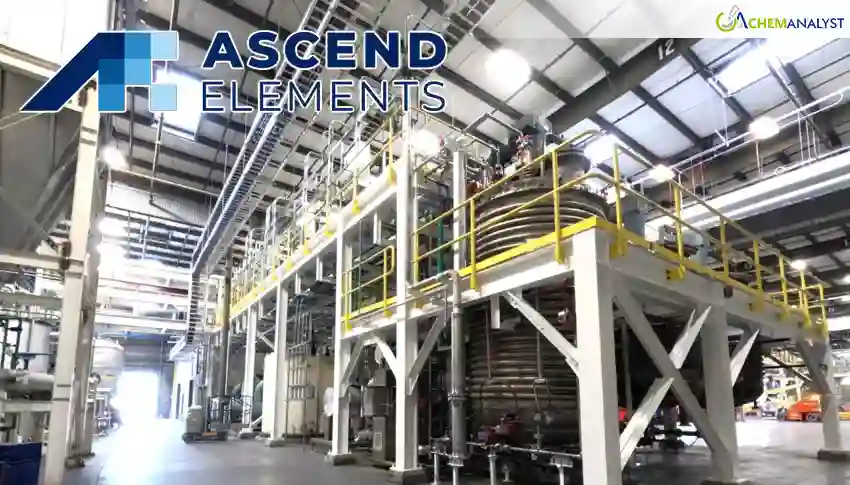Welcome To ChemAnalyst

Ascend Elements achieves first commercial-scale recycled lithium carbonate production, advancing critical minerals recovery, energy security, and sustainable battery supply chains in the U.S. and Europe.
Ascend Elements, a U.S.-based battery recycling and engineered materials company, has announced a major advancement in critical mineral recovery. For the first time, the company successfully produced recycled lithium carbonate (Li2CO3) with a purity level exceeding 99% from black mass at commercial scale. Black mass, the dark powdered residue obtained from end-of-life lithium-ion batteries during recycling, contains valuable metals such as lithium, cobalt, and nickel. This breakthrough was demonstrated last month at Ascend Elements’ Covington, Georgia, facility, which operates a commercial-scale lithium recovery line capable of handling 3,000 metric tons annually.
This milestone signals the commercial viability of recovering lithium from spent batteries, a crucial step toward reducing reliance on imported critical minerals. Looking ahead, Ascend Elements has set ambitious goals. By 2027, the company intends to produce over 15,000 metric tons of recycled lithium carbonate annually across its operations in the United States and Europe. In addition to the existing Covington line, plans are underway to build a cutting-edge battery materials facility in Europe equipped with an advanced lithium recovery line.
Highlighting the company’s strategic role, Linh Austin, President and CEO of Ascend Elements, noted that the achievement aligns with three major global trends: electrification, localization of supply chains, and securing access to critical minerals. “Producing recycled lithium carbonate at commercial scale in both the U.S. and Europe strengthens energy independence, critical mineral security, and the broader electrification movement in the Western world,” Austin emphasized.
Lithium carbonate is a highly valuable mineral recently included on the official U.S. federal list of critical minerals published in August 2025. Its uses extend beyond batteries to applications in glass and ceramics manufacturing. Currently, however, the United States imports 98% of its lithium carbonate, mainly from South America. Europe also remains heavily dependent on imports from South America and China, while domestic mining and refining capacity remains limited in both regions. Austin further highlighted the efficiency of recycling, pointing out that lithium concentrations in black mass are roughly ten times higher than those found in Chilean brine pools.
Environmental benefits also play a central role in Ascend Elements’ approach. A newly published life cycle assessment confirmed that the company’s lithium recovery process has far lower environmental impacts compared to conventional mining. Specifically, it produces 86% fewer CO2-equivalent emissions and 97% less particulate matter (PM 2.5) than spodumene mining, and 37% fewer CO2-equivalent emissions with 81% less PM 2.5 compared to Chilean brine extraction. By 2030, with further decarbonization measures, Ascend Elements aims to cut CO2-equivalent emissions by 99% and particulate emissions by nearly 99.7%.
Founded in 2015, Ascend Elements has become a leader in sustainable battery materials. The company not only recovers lithium carbonate but also manufactures engineered battery materials such as NMC precursor cathode active material (pCAM). Its proprietary Hydro-to-Cathode® direct synthesis technology enables production of new cathode materials from spent batteries more efficiently than traditional processes, supporting both economic advantages and reduced carbon emissions.
We use cookies to deliver the best possible experience on our website. To learn more, visit our Privacy Policy. By continuing to use this site or by closing this box, you consent to our use of cookies. More info.
